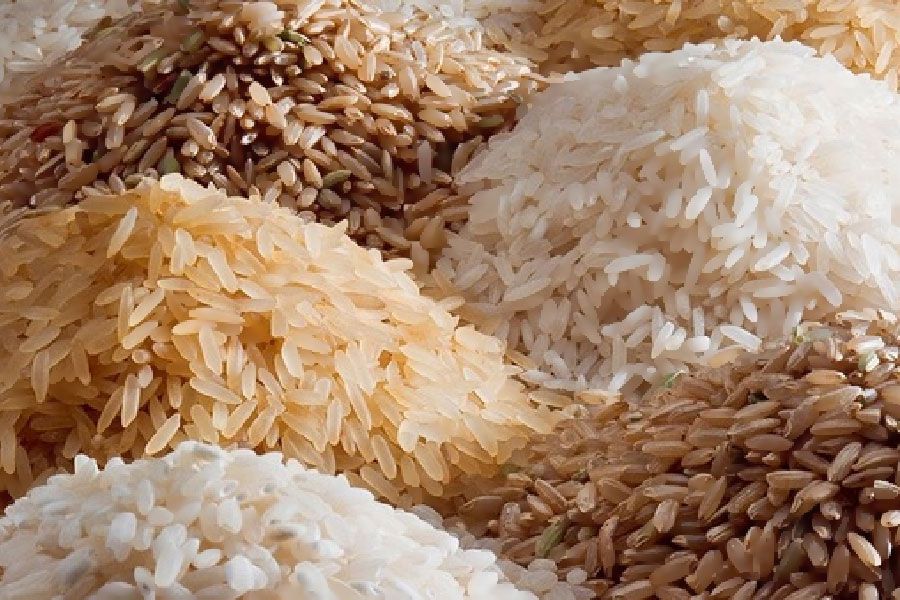
The gradual but steady decline in rice prices has sparked mixed reactions across the country. While the development is a joy for consumers, some Nigerians have started counting their losses, especially those who rely on local production to get by.
The dramatic price drop didn’t just happen by magic. It followed a recent surge in imported rice through Nigeria’s land borders, which had previously been shut for over five years by the late former President Muhammadu Buhari’s administration.
According to the News Agency of Nigeria (NAN), the price of a 50kg bag of rice, which sold for around ₦85,000 earlier in the year, now ranges from ₦55,000 to ₦70,000, depending on the brand and location.
RELATED: Ogun Govt earns ₦1bn revenue from rice production, poised to feed the nation
While this means relief for most consumers who had endured the excruciating effects of President Bola Tinubu‘s economic reforms, many rice farmers and other local players are groaning under the weight of financial losses.
Here are the biggest losers as rice prices continue to crash in Nigeria
1) Local Rice Farmers
For local farmers, this crash happened at the wrong time. Many of them had invested heavily in planting and harvesting during the last farming season, hoping to sell their rice paddy at a profit.
Now that imported rice is flooding the market at cheaper prices, the demand for local rice has continued to decline at a worrying rate for farmers. Consumers are opting for cheaper imported rice, leaving local farmers with unsold produce.
Some farmers have lamented their struggle to recover costs for seeds and fertiliser. Without required government support and consumer patronage, many of them may be forced to abandon rice farming next season.
RELATED: Nigeria achieves 75% self-sufficiency in rice production – FG
2) Local Rice Millers
Rice millers, especially small and medium-scale operators, are also feeling the heat. These millers depend solely on steady demand from offtakers to keep their machines running.
Now that imported rice is cheaper and more readily available, orders from sellers have dropped sharply. Some mills are cutting production, while others are on the verge of a temporary shutdown due to their inability to compete with the lower prices of imported rice.
When millers struggle to keep the machines running, a substantial part of their workforce may become redundant, ultimately resulting in job losses for families.
RELATED: Bauchi: Local mills allocated land for rice production
3) Local Transporters
Transporters who move rice paddies from farms to milling houses, markets, and warehouses are also caught in this web of import-driven price drop. As demand for local rice continues to fall, fewer produce are available to move, which means fewer trips and, in turn, less income.
Drivers who transport rice across the country are now spending days waiting for deliveries that may never come. For many others, the cost of fuel, vehicle maintenance, and road taxes now surpasses what they earn per trip.
RELATED: Imota Rice Mill: Sanwo-Olu tasks contractors on production date
4) Wholesalers and Retailers
Wholesalers and retailers are the loudest voices of frustration. Many of them bought rice and stocked up their warehouses months ago when prices were sky-high, expecting to cash in when prices rise even further.
Instead, they woke up to a market crash with large stocks that left them with no option but to sell at a loss. For small business owners, this has been a tough blow in an already difficult economy.
While the drop in rice prices feels like a win for consumers, it also raises serious questions about Nigeria’s agricultural independence and stability. If local producers continue to suffer losses, the country could become even more dependent on imports, which could later drive prices back up.
For now, shoppers may be celebrating, but for thousands of farmers, traders, and transporters across Nigeria, the good news has come at a heavy cost.
RELATED: FG distributes fertilisers, inputs to 4,671 farmers in Borno








